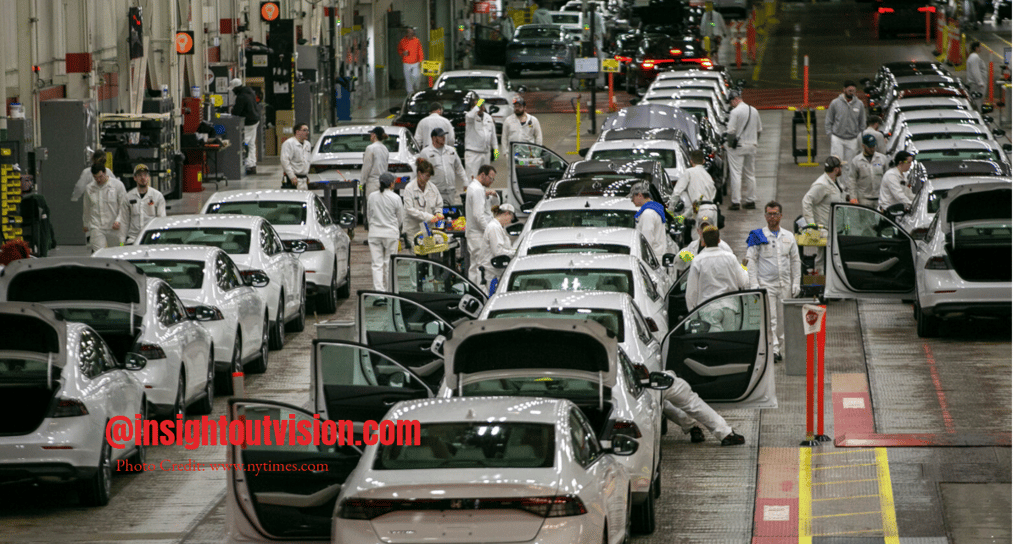Electric Vehicles Thrive Globally: Can the U.S. Keep Up Amid Trump’s Climate Rollbacks?
5/20/20252 min read


Electric Vehicles Thrive Globally: Can the U.S. Keep Up Amid Trump’s Climate Rollbacks?
Category: News | Sub-category: Environment & Climate | InsightOutVision.com
Intro: A Green Revolution Persists
Global electric vehicle (EV) sales are surging in 2025, defying the Trump administration’s pullback from climate-friendly policies, per ABC News. From China’s NIO launching advanced EVs to Europe’s record-breaking adoption, the world is embracing green transport. Yet, U.S. policies favoring fossil fuels could leave America lagging. What’s driving this boom, and can the U.S. stay in the race? Let’s explore the EV surge and its climate implications.
The Global EV Boom
EV sales grew 25% globally in Q1 2025, led by China and Europe, per ABC News. NIO’s updated ES6 and EC6 models, launched May 16, boast AI-driven autonomy and competitive pricing (338,000 RMB for ES6), with deliveries starting May 20, per X trends. Europe’s EV market hit 2 million units, fueled by subsidies and emissions mandates. Even the UAE, a traditional oil power, is investing in EV infrastructure, per CNN.
This growth contrasts with U.S. policy. Trump’s administration has cut EV tax credits and loosened emissions standards, prioritizing oil and gas. Despite this, U.S. EV sales rose 15%, driven by Tesla and Ford, but lag global peers.
Trump’s Climate Rollback
Trump’s policies include:
Funding Cuts: Reduced support for EV infrastructure and renewable energy, per The New York Times.
Regulatory Rollbacks: Weakened EPA emissions rules, favoring fossil fuel industries.
Tariff Impact: Tariffs on Chinese EV components raise costs for U.S. manufacturers, per Reuters.
These moves aim to boost jobs in traditional energy but risk isolating the U.S. as global markets shift green. China’s dominance in EV batteries, per Bloomberg, underscores the stakes.
Environmental and Economic Stakes
The EV surge has big implications:
Climate Impact: EVs cut transport emissions, which account for 30% of global CO2, per the IPCC. Wider adoption could slow warming.
Economy: Green tech could create 10 million jobs globally by 2030, per the International Energy Agency, but U.S. lag risks losing ground.
Consumers: EVs lower long-term costs but face higher upfront prices if tariffs persist.
Skeptical Take: Hype or Reality?
Some question the EV boom’s staying power. X posts from@EnergySkeptic cite battery production’s environmental toll and grid reliability issues. Others, like@GreenFuture, argue EVs are critical for net-zero goals. Trump’s team claims oil remains king, but global investment trends favor renewables.
What’s Next?
Global EV growth shows no signs of slowing, with Europe targeting 50% EV sales by 2030. The U.S. faces a choice: reinvest in green tech or risk falling behind. Consumer demand and state-level policies, like California’s EV mandates, may counter federal rollbacks.
Conclusion: A Fork in the Road
The global EV surge is a climate win, but Trump’s policies put the U.S. at a crossroads. While China and Europe race ahead, America’s lag could cost jobs and environmental progress. For consumers, EVs offer hope, but policy shifts will determine their accessibility. The climate clock is ticking—can the U.S. catch up?
Thought Questions:
Should the U.S. prioritize EV investment despite Trump’s fossil fuel focus?
How might higher EV prices from tariffs affect your decision to buy one?
Can global EV growth drive meaningful climate progress without U.S. leadership?
Sources: ABC News, Reuters, The New York Times, Bloomberg, X posts
Explore deep insights on current events and growth.
Vision
Truth
hello@insightoutvision.com
+1-2236036419
© 2025. All rights reserved.
